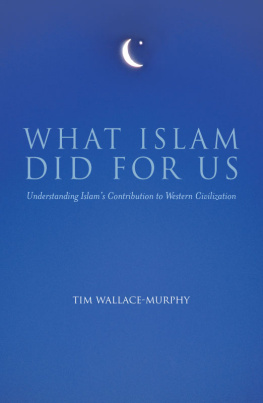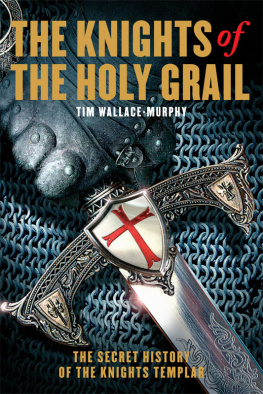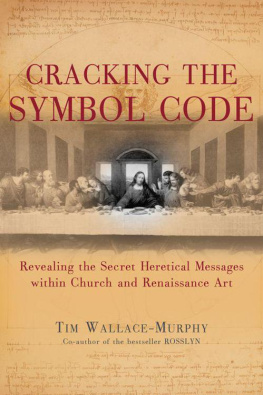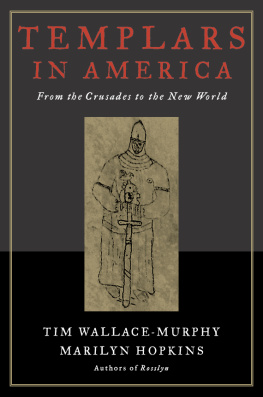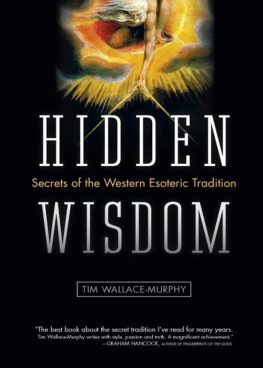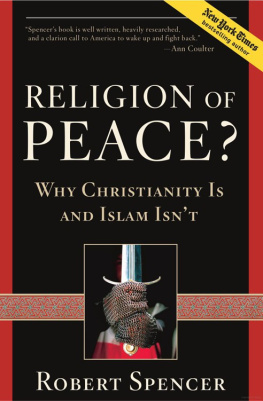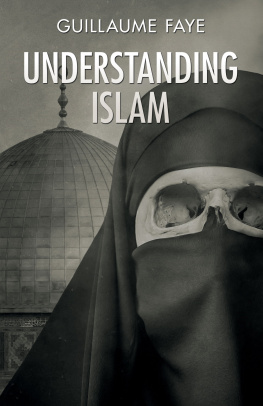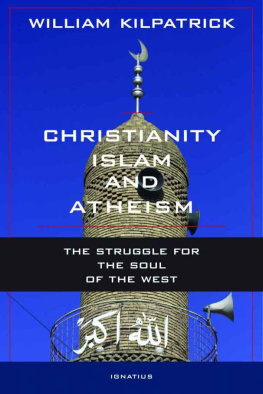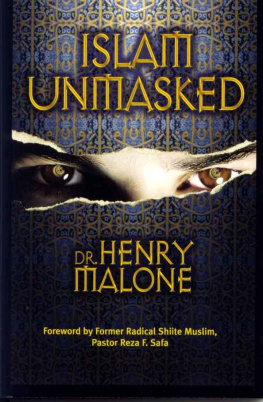No work such as this is ever produced without the help, encouragement and support of a number of people. Responsibility for the contents of this book rests entirely with the author, but I gratefully acknowledge the help and encouragement received from: Richard Beaumont of Staverton, Devon; Laurence Bloom of London; Richard Buades of Marseilles; Nicole Dawe of Okehampton; Sandy Donaghy of Newton Abbot; Jean-Michel Garnier of Chartres; the late Guy Jourdan of Bargemon; Georges Keiss of the Centre dtudes et de Recherches Templire, Campagne-sur-Aude; Michael Monkton of Buckingham; Dr Hugh Montgomery of Somerset; James Mackay Munro of Penicuick; Andrew Pattison of Edinburgh; Stella Pates of Ottery St Mary; Alan Pearson of Rennes-les-Bains; Amy Ralston of Staverton, Devon; Victor Rosati of Totnes; Pat Sibille of Aberdeen; Niven Sinclair of London; Alex Wood of Shaldon; Prince Michael of Albany, my editorial consultant, John Baldock, who has guided my hands so many times in the past, and, finally, Michael Mann and Penny Stopa of Watkins Publishing.
Introduction
T here is an old Chinese curse that proclaims May you live in interesting times, and interesting times are defined as times of turmoil. We certainly live in those times today when the Western countries are perceived as being at war with Islam, and Muslim fundamentalists respond with unpredictable waves of terror: the attack on the Twin Towers in New York, a suicide-bomber attack on a nightclub in Bali, bombed trains in Madrid and the attacks on the London Underground on 7 July 2005.
To understand how the relationship between Christianity, Judaism and Islam has degenerated to its present level of intolerance and distrust, it is necessary to go back in time to examine the common origin, history and development of all three of these great faiths and the changing relationships between them. We then discover that Islam has traditionally manifested an intrinsic and profound degree of toleration for the other great faiths. Within the Holy Quran, Christians and Jews are described as the People of the Book and have been treated with respect and toleration by the world of Islam throughout its long history. The People of the Book, are those faiths, such as Christianity and Judaism which, like Islam itself, are founded upon a written source of spiritual revelation. Furthermore, as we will also discover, Islams contribution to the development of European culture has been profound.
With the dramatic destruction of Jerusalem by the Roman army in ad 70, most of the Jewish people, including the 24 families of the mamadot, the hereditary high priests of the Temple that included the family of Jesus, had to flee for their lives. The hereditary priests scattered all over the known world with many settling in Europe and some crossing the Jordan to settle in Arabia among other Jewish exiles. Muhammed grew up in an area inhabited by a considerable Jewish population descended from those who had fled to Arabia after ad 70. Impressive though Jewish influence was in that district, the influence of Coptic and Syrian Christianity was even stronger. However, these were Christians who would have been regarded as outright heretics by the Church authorities in Europe, for they believed that Jesus was human and not divine. Muhammed, who was born in Medina in, or about, 570 ce, was absolutely convinced that he was a true messenger of God in the respected and ancient spiritual tradition of Abraham, Moses, Elijah, John the Baptist and Jesus, and no more perceived himself as founding a new religion than had Jesus before him. He believed that he was called upon to restore true monotheism by testifying to the ancient religion of the one true God. According to the Prophet Muhammed, the One Truth had been revealed to both Jews and Christians but they had either distorted the message or ignored it.
Unlike Christianity, which tried to suppress all rival religions, Islam from its very inception maintained a great degree of tolerance towards other faiths, so that members of all three great mono-theistic religions of the world were able to live together in relative peace and harmony under the benevolent rule of Islam. The Jews, for example, who were being hounded to death or treated as second-class citizens in Christian Europe, enjoyed a rich cultural renaissance of their own and, like the Christians, were allowed full religious liberty throughout the Islamic Empire. Volumes of study devoted to the initiatory wisdom of the traditional Jewish mystical stream known as the kabbalah were produced in the Jewish rabbinical schools in Moorish Spain, and most Spanish Christians were extremely proud to belong to a highly advanced and sophisticated culture that was light years ahead of the rest of Europe. The Islamic mystery tradition was elaborated by the Sufi mystery schools of Andalusia which provided open and accessible sources of mystical teaching in an otherwise spiritually barren continent.
The influence of Moorish Spain on the development of Western culture was indeed profound. For example, the well-attended and richly endowed colleges in Andalusia were later to provide a model for those of Oxford and Cambridge in England. At a time when most European nobles, kings and emperors were barely literate, the Umayyad court at Cordova was the most splendid in Europe and provided a haven for philosophers, poets, artists, mathematicians and astronomers; Islamic Spain also gave Europe an architectural and artistic heritage that is still a source of wonder to the modern world. It was in translation from Arabic, not the original Greek, that knowledge of the Greek philosophers crept cautiously back into the mainstream of Christian thought via schools in Spain. Along with philosophy, mathematics and science came more recent advances in medicine, art and architecture. These were all fruits of spiritual insight, sacred gnosis that flowed from the Islamic mystical traditions and that were passed on to Christian Europe via the Rex Deus families who claim to be descended from the 24 high-priestly families in Jerusalem.
The contrast in attitudes to learning and religious toleration between Christian and Islamic cultures was made brutally obvious at the time of the Crusades. While Christian knights were butchering infidels after the capture of Jerusalem, other, more enlightened, members of the same religion were sitting at the feet of Muslim scholars in Spain. Spain was not the only cultural bridge between the Christian and Muslim worlds, Moorish incursions into Provence, the Arabic conquest of Sicily and, of course the Crusades and the long occupation of the Holy Land that followed, provided ample opportunities for cross-cultural fertilization.

